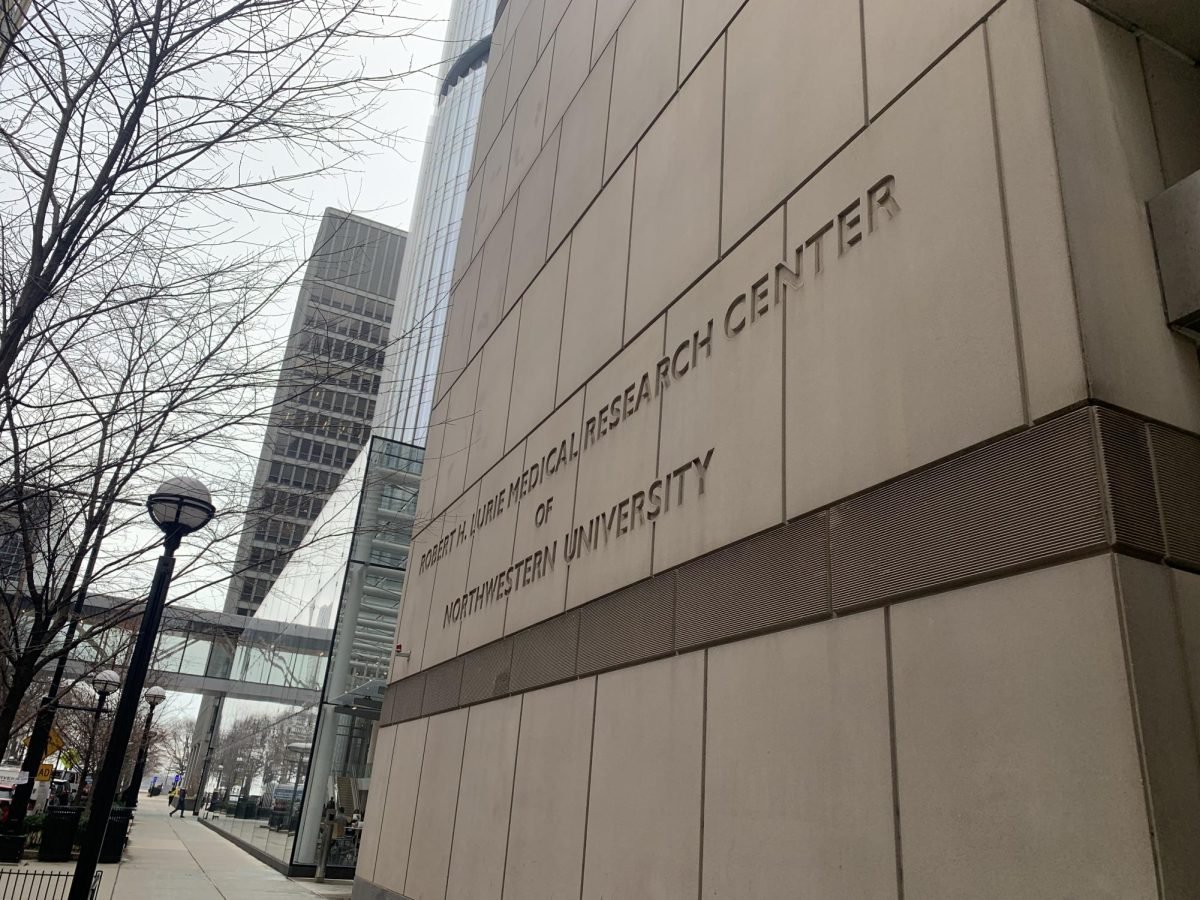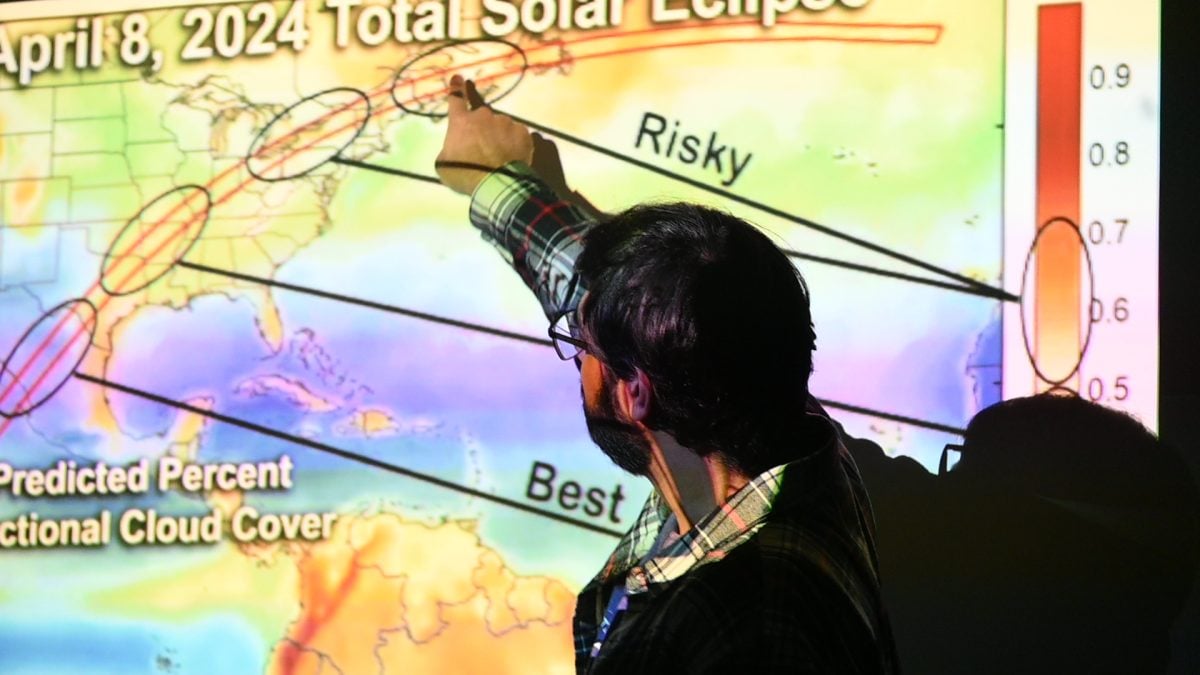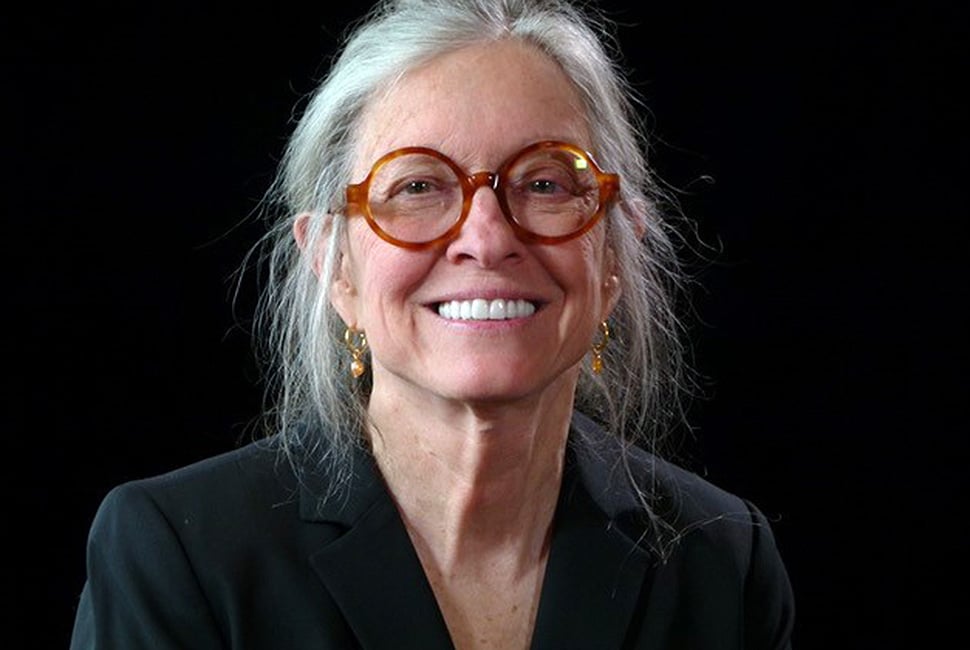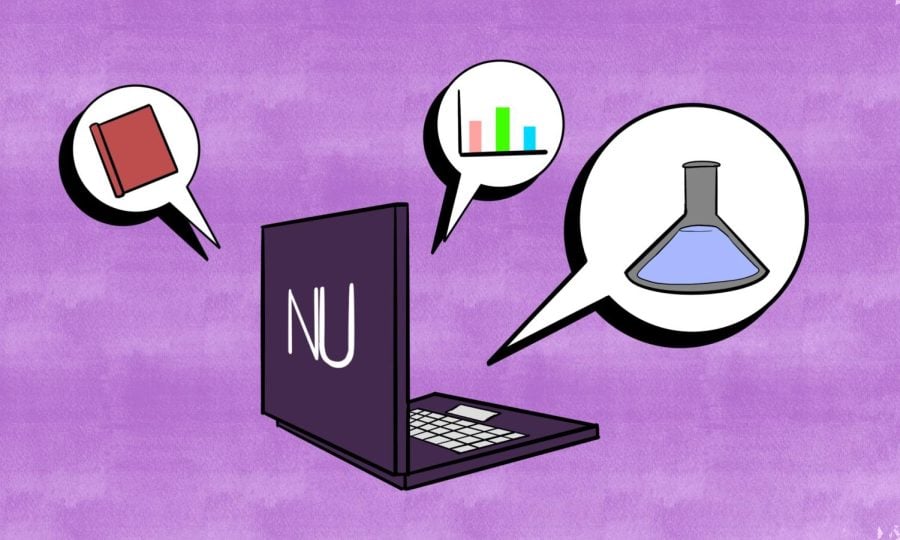Since 2006, the Feinberg School of Medicine has hosted the Montgomery Lecture Series, in which leaders in bioethics lecture weekly on topics shaping the field.
Bioethics are, as Dr. Kelly Michelson, the director of the Center for Bioethics and Medical Humanities at Feinberg, puts it, “an intentional effort to recenter the human aspects of care interaction, and what it means to be a doctor.”
Thursday’s edition of the series — the first of 2024 — featured anthropologist and OB-GYN Dr. Ashish Premkumar. Premkumar presented on how abortion restrictions have affected maternal-fetal intervention in the wake of the Dobbs v. Jackson Women’s Health Organization Supreme Court ruling last year.
The lecture also highlighted the impact of language in discussions around fetal care through a philosophical lens. Premkumar brought up two differently framed news stories describing the same pregnancy-related complication. He explained that the choice to focus on the “pain” of a complicated childbirth versus highlighting the “fight” to keep a baby alive can unconsciously shape our understanding of maternal and fetal health.
“Who is mobilizing what narrative, for what purpose, is something I think needs a lot more inquiry,” Premkumar said.
The combination of science and the humanities is core to the field of bioethics. Specializations are diverse, and recent research from the Center’s faculty has ranged from the impact of continuity of care in NICUs to balancing addiction risk when helping patients with pain.
“If it was all about science and facts, we could get all of our health care on the computer,” Michelson said. “There’s a lot of uncertainty. There’s a lot of individualizing care, based on nuanced issues. Some of them are sort of physical and medical, and others are more social, cultural. And all of that, I think, is hugely important in delivering high-quality health care.”
According to Dr. Megan Crowley-Matoka, director of the Medical Humanities and Bioethics Master’s program and organizer of the Montgomery Lectures, bioethics and medicine go hand-in-hand at Feinberg.
Crowley-Matoka said one of the first classes students are required to take at Feinberg is MHB 401: Foundations of Bioethics, and that, in a policy she says is unusual, she and her colleagues teach bioethics and medical humanities across all four years of the medical curriculum.
The lecture series, named after Professor Emeritus Kathryn Montgomery, is a part of that. While the lectures can be taken by medical students as a writing class, they’re also available to the wider public. This presents not only greater accessibility to the field, but also a compelling challenge to lecturers, Crowley-Matoka said.
“So many of us, as scholars, are used to presenting to our own disciplinary communities,” Crowley-Matoka said. “We’re having the opportunity to figure out, ‘How do I make what I do as a historian relevant, accessible and interesting to this group that might include third-year medical students, a neuroscientist and a chaplain?’”
Fields ranging from improv to poetry to religion are integrated into the wider medical humanities curriculum. According to Michelson, this integration is key to not only furthering medicine, but also to making better doctors.
“It’s one of the things that I think is unique about Northwestern,” Michelson said. “How is health care and medicine reflected in other disciplines and other arts? And how do other disciplines and other arts potentially impact what we do in health care and medicine?
Email: [email protected]
Related Stories:
— Northwestern Medicine study finds new bacteria strains are less aggressive than previously thought
— Northwestern researchers receive $24 million grant to fund evaluation of childhood health
— NIH awards NU researchers $5 million grant to study pregnancy and disability















